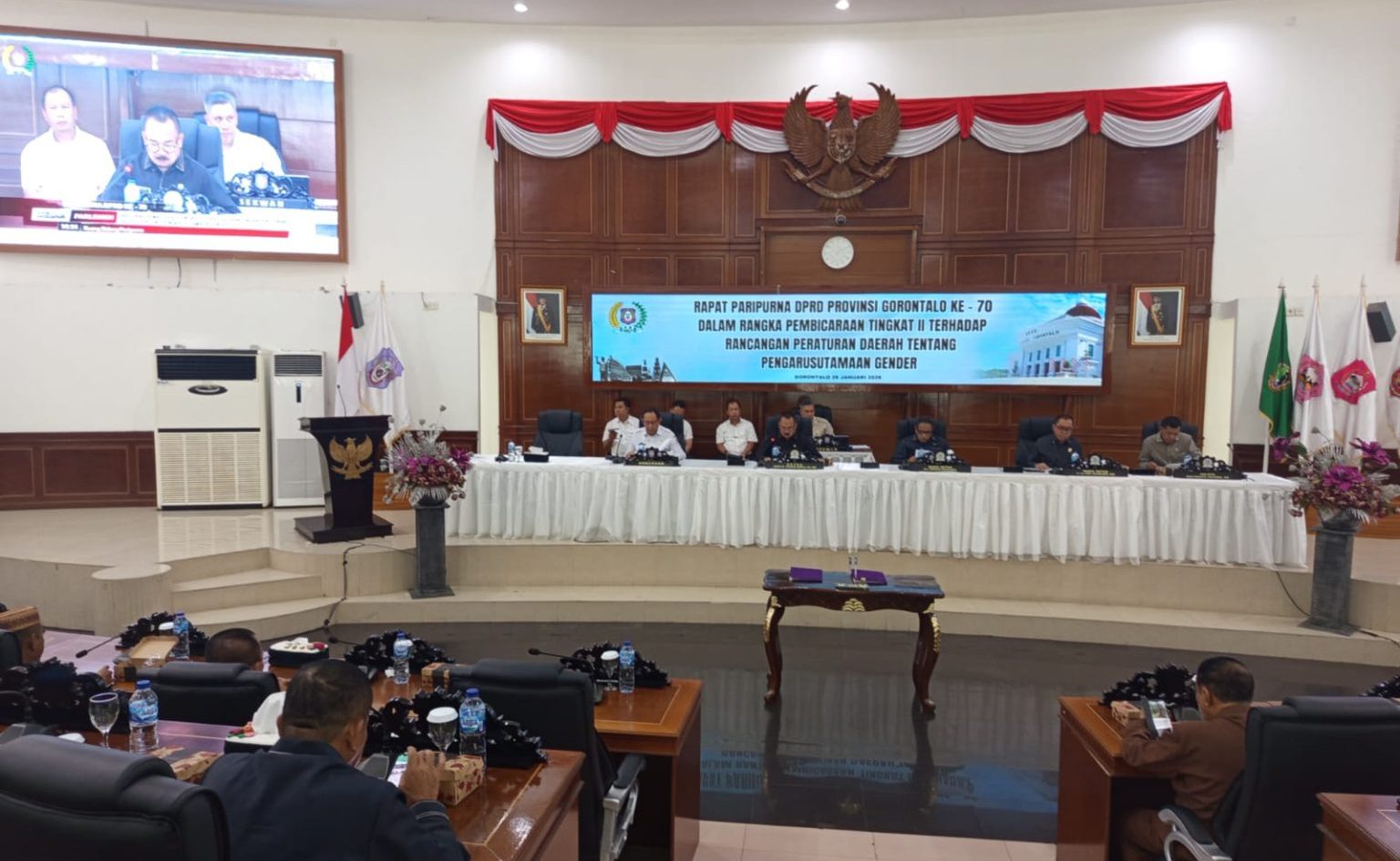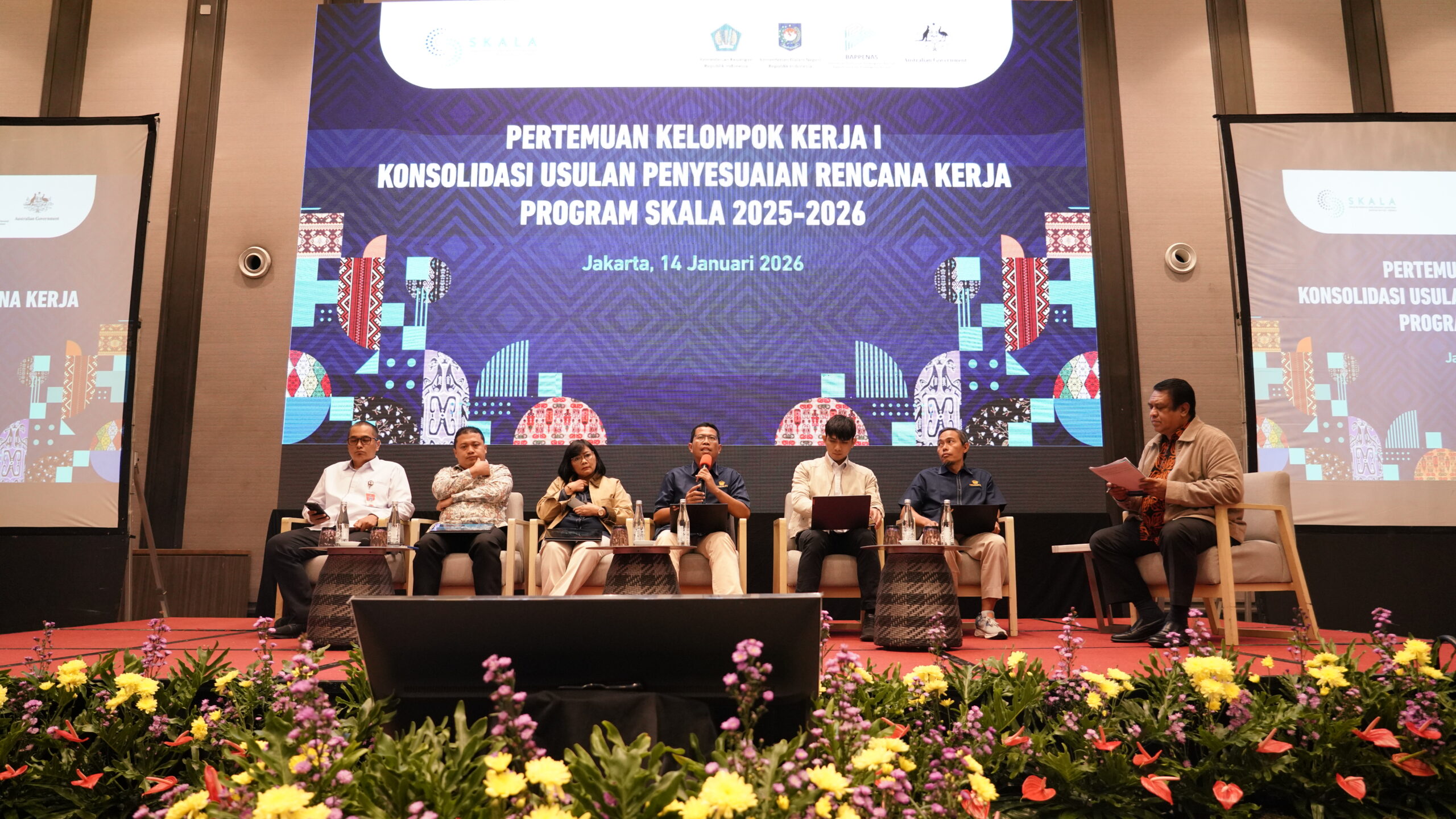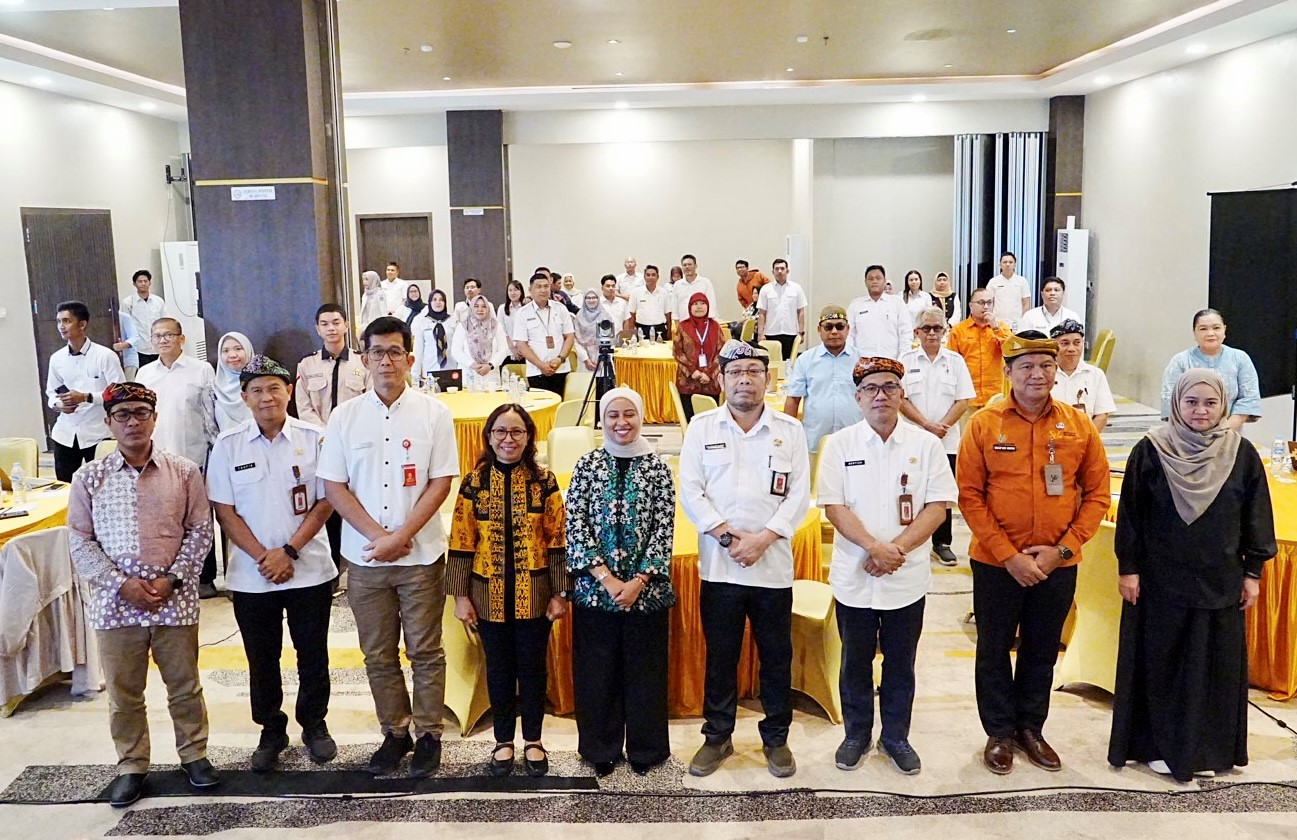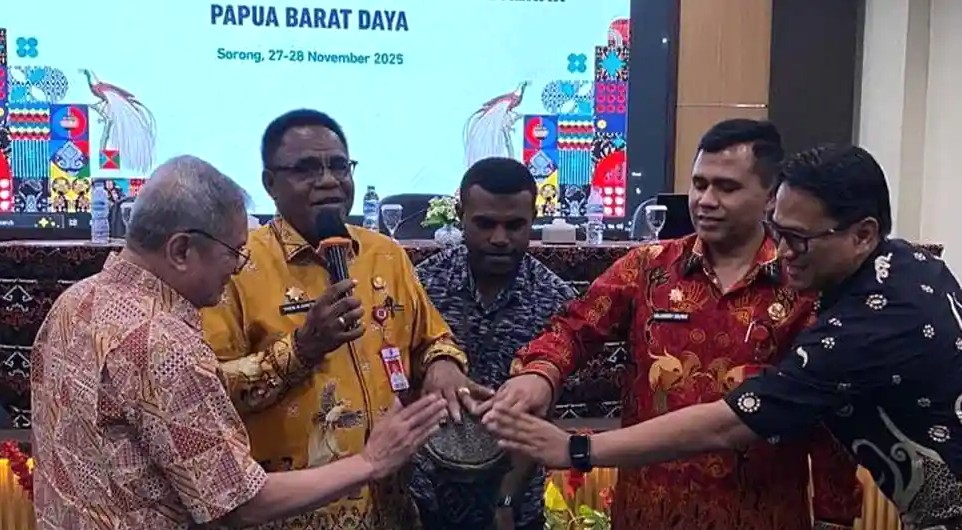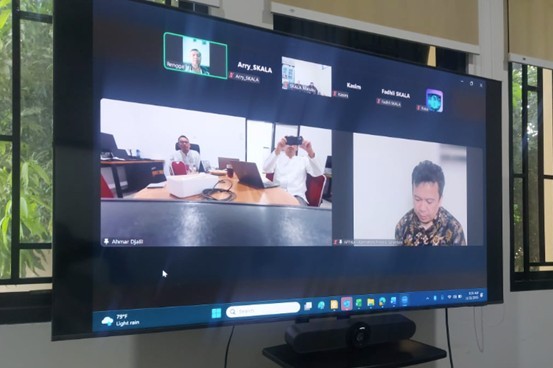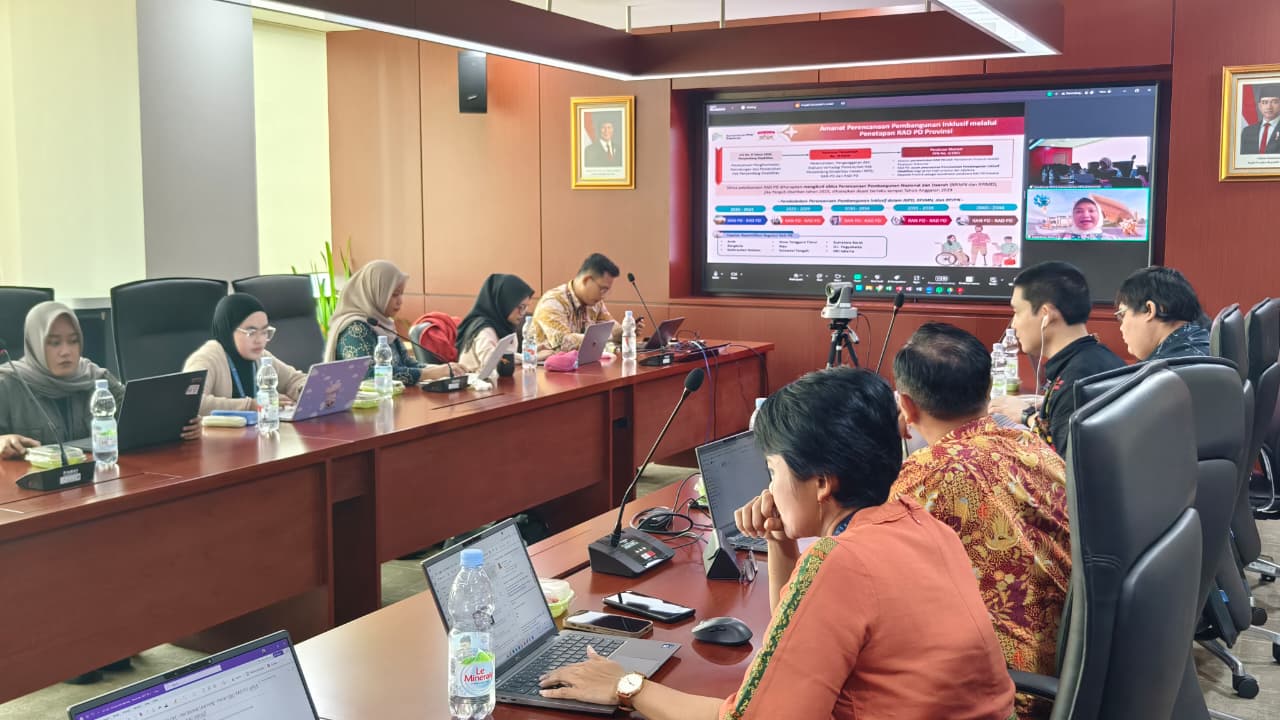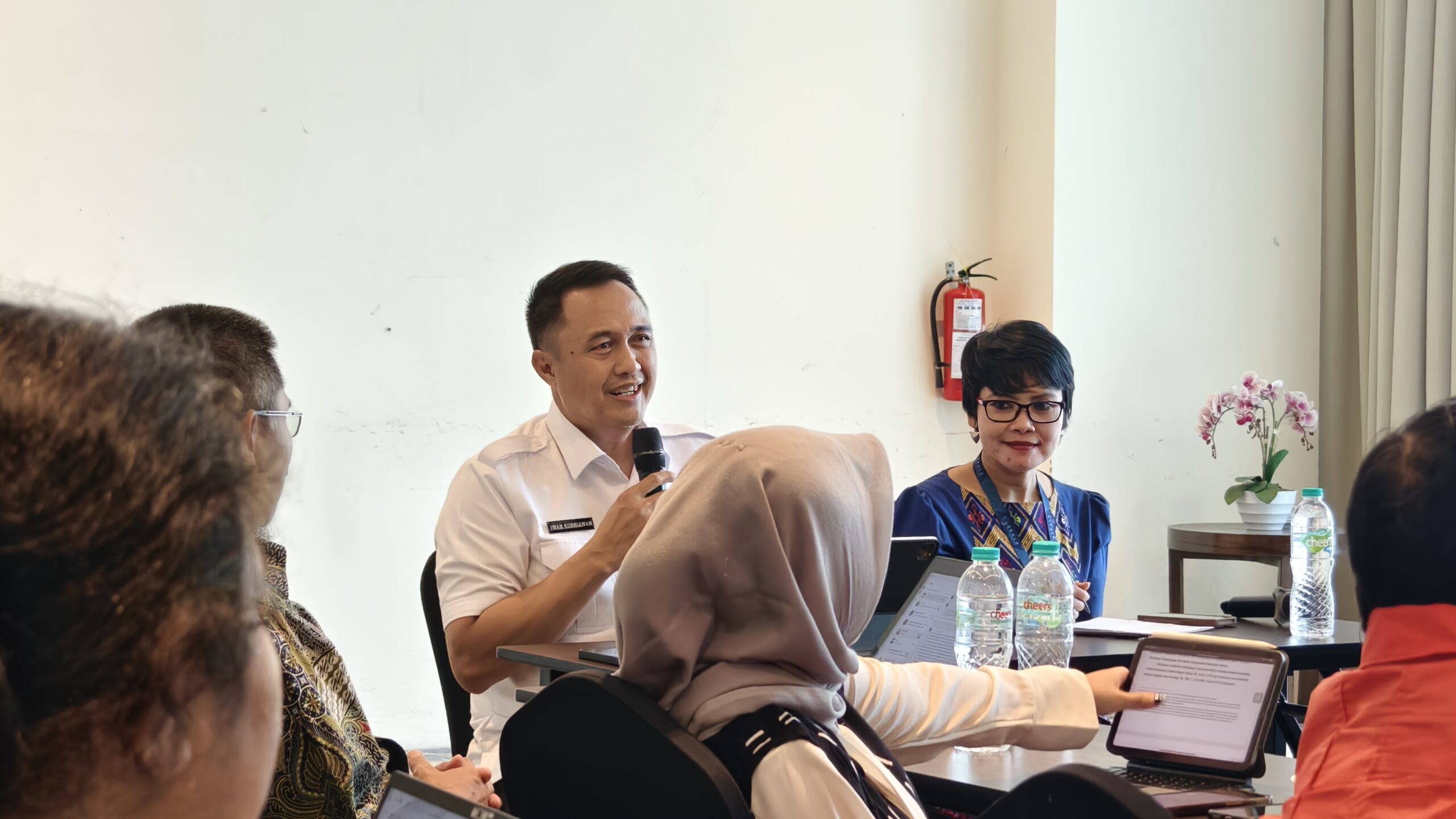Gorontalo Province is strengthening gender mainstreaming (Pengarusutamaan Gender/PUG) to advance inclusive development through participatory planning, gender-responsive budgeting, and stronger policy frameworks. Key initiatives such as Musrenbang Inklusif have expanded meaningful participation for women and vulnerable groups, while provincial agencies integrate Gender, Disability, and Social Inclusion (GEDSI) perspectives into strategic planning, including the 2025–2029 RPJMD. These efforts culminated in the enactment of the Provincial Regulation on Gender Mainstreaming in January 2026, providing a solid legal foundation to embed gender equality across development planning and budgeting, supported by civil society and development partners to ensure effective and sustainable implementation.
Improving basic services in Indonesia depends on sustained alignment between national policy direction and subnational implementation capacity. Within a decentralised governance context, effective coordination across levels of government is essential to translate policy priorities into planning, budgeting, and service delivery outcomes. Through a series of Pokja meetings convened in January 2026 under the SKALA partnership, central ministries, subnational governments, and development partners consolidated policy alignment, reflected on implementation challenges, and refined adjustments to the 2025–2026 Annual Work Plan. The discussions highlighted shared priorities, including strengthening fiscal targeting for Minimum Service Standards, improving data integration and governance, and embedding inclusive approaches across planning and service delivery, reinforcing the role of coordinated national–subnational engagement in improving the reach and quality of basic services across Indonesia.
The series of SKALA Program Provincial Program Committee (PPC) workshops held on December 8–12, 2025, in six provinces emphasized the importance of maintaining consistency in the direction of regional development implementation amid fiscal constraints and policy dynamics. This forum served as a strategic reflection space for the central and regional governments to evaluate achievements, lessons learned, and challenges in policy implementation, particularly in meeting Minimum Service Standards (SPM), strengthening data-based planning, and improving the quality of public spending so that it has a real impact on the community, especially vulnerable groups. Through cross-sectoral and cross-level government discussions, the PPC strengthens the shared commitment that inclusive and equitable development can only be achieved through sharp priorities, adaptive governance, and sustainable collaboration.
The Government of Papua Barat Daya is developing its 2025-2029 Local Own-Source Revenue (PAD) Roadmap to strengthen fiscal independence, supported by a multi-stakeholder workshop held in Sorong that convened provincial and subprovincial agencies, academics, and community representatives. As Indonesia’s youngest province facing simultaneous institutional development and infrastructure demands, Papua Barat Daya is prioritising PAD reform to stabilise its fiscal capacity. The roadmap focuses on optimising existing revenue sources and exploring new potential aligned with local economic strengths such as fisheries, tourism, and value-adding natural resource industries, while ensuring PAD policies remain inclusive and beneficial to communities and businesses. The workshop identified key targets, including a comprehensive PAD enhancement strategy, accelerated reform through service simplification and digitalisation, and preparation of a draft Governor’s Regulation aligned with national fiscal frameworks under the Law on Fiscal Relations (UU HKPD). With technical assistance from the Indonesia–Australia Partnership Program SKALA, the roadmap is being refined to ensure methodological robustness, regulatory alignment, and practical implementability, forming a critical foundation for stronger regional financing and improved public services across Papua Barat Daya.
Australian Ambassador to Indonesia Rod Brazier commended Gorontalo’s progress in strengthening local governance through data innovation during his visit to the provincial Command Centre on 22 October 2025, where he and Governor Gusnar Ismail observed how the Pentagon open data platform and the Executive Dashboard are enabling evidence-based decision-making. Integrating datasets across key sectors and presenting them through clear, real-time visualisations, the system allows leaders to track priority programs, budget realisation, public services and provincial performance more efficiently—while also enhancing transparency through public data access. Supported by the Ministry of Home Affairs under the One Data for Subnational Government framework and technical assistance from the Australia–Indonesia partnership program SKALA, Gorontalo’s digital governance initiatives reflect a strong commitment to SPBE implementation and have earned recognition from Australia as a model for more effective, accountable and data-driven regional governance.
The pilot testing of the Papua Special Autonomy (Otsus) Fund Interoperability System demonstrated a major improvement in efficiency and transparency by integrating the previously separate SIPPP, SIKD-Otsus, and SIPD platforms into a single workflow for planning and budgeting. Conducted in November 2025 with Jayapura Regency and Papua Province, the pilot showed that tasks requiring repeated data entry and reconciliation across systems can now be completed seamlessly in one platform, supported by clearer document tracing and more structured evaluation processes. Issues that emerged—such as fund-tagging and unit price adjustments—provided valuable feedback for refining the system ahead of the 2026 rollout. Supported by the SKALA Program, the initiative strengthens Otsus Fund governance and enables regional governments to focus more on programme quality and community benefits, contributing to broader development agendas including Papua Sehat, Papua Cerdas, and Papua Produktif.
Gorontalo and Maluku strengthened their commitment to improving subnational data governance through an inter-provincial learning session on 21 November 2025. Supported by the Indonesia-Australia Partnership Program and SKALA, the dialogue enabled both provinces to exchange practical insights on developing regional data portals and executive dashboards that support evidence-based decision-making. Gorontalo shared its progress with its Executive Dashboard and PENTAGON data portal—highlighting system integration, real-time monitoring, and the use of non-formal data—while Maluku identified opportunities to enhance its own data workflows and coordination. The session not only fostered peer learning but also reinforced ongoing collaboration through a dedicated communication channel, illustrating how provincial initiative and cooperation can accelerate stronger, more inclusive data systems.
Aceh, East Nusa Tenggara (NTT), and DKI Jakarta are putting disability-inclusive development into action through stronger regulations, meaningful engagement with organisations of persons with disabilities (OPDis), and improved use of data and monitoring systems to guide planning and service delivery. Their progress, shared during the Regional Learning Workshop hosted by the Ministry of National Development Planning, highlights how provinces are integrating the Regional Disability Action Plan (RAD PD) into policies, budgeting, and implementation. While challenges remain, including gaps in disaggregated data and the need for clearer technical guidance, these provinces are strengthening collaboration with OPDis and building systems that support more equitable and inclusive development. Their efforts offer valuable lessons and emerging leadership for advancing disability rights and inclusive development across Indonesia.
The Public Consultation on the Guideline for the Participation of Vulnerable Groups highlights Indonesia’s commitment to inclusive development by strengthening meaningful community involvement in regional planning and budgeting. Bringing together government ministries, civil society organisations, and regional planning offices, the consultation refined a draft guideline designed to embed gender-responsive and socially inclusive principles into Musrenbang processes. With insights from national agencies and successful regional practices such as NTT’s MUSIK KEREN, the consultation emphasised accessible forums, stronger monitoring, representative quotas, and better integration of community proposals into official plans. Supported by the SKALA Program, the initiative aims to ensure that vulnerable groups—women, persons with disabilities, older persons, children, Indigenous communities, and others—have an active voice in shaping Indonesia’s development priorities.





